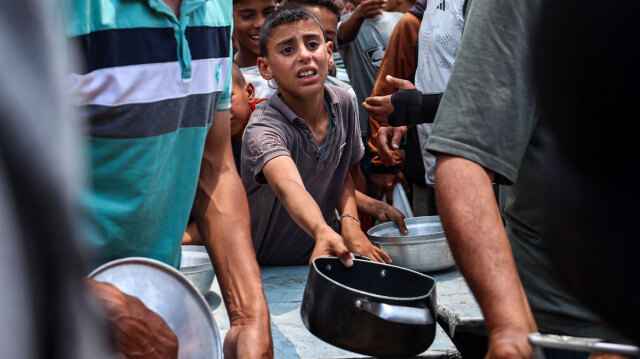The situation for Palestinians in the Gaza Strip has always been dire, but nearly 18 months of continuous Israeli airstrikes, combined with a recent halt in humanitarian aid, has escalated it to a critical and possibly irreversible level.
Without immediate and uninterrupted relief, the lives of hundreds of thousands in Gaza, particularly countless children, are at grave risk.
Since October 7, 2023, the reported death toll in Gaza stands at 53,655—an estimate generally accepted but likely lower than reality. Today alone, over 80 individuals, including a one-week-old baby, have lost their lives.
Many people endure long waits at food distribution sites under harsh conditions, only to return home empty-handed.
In recent days, around 100 trucks loaded with humanitarian aid have entered Gaza, yet aid organizations describe this influx as merely a “drop in the ocean.”
The United Nations has declared that the current level of aid is inadequate, noting that “only a handful of trucks” have reached those in need. More critically, the UN has warned that 14,000 babies face imminent death if emergency assistance does not arrive soon.
While Israel claims to facilitate aid deliveries while preventing it from being seized by Hamas, many observers argue that the latter often obstructs or nullifies these efforts.
Since March 2, the Netanyahu administration has blocked all aid to Gaza, contending that sufficient support was provided during a six-week ceasefire and accusing Hamas of pilfering supplies.
The plight of Palestinians in Gaza worsens as they perceive aid as tantalizingly out of reach. The UN Relief and Works Agency for Palestine Refugees (UNRWA) recently shared in a video that it has “food for 200,000 people, medicine for 1.6 million, blankets, hygiene supplies, and more” awaiting clearance in Jordan for distribution.
Moreover, hospital supplies are critically low, complicating even basic surgeries and exacerbating injuries sustained from ongoing combat.
Take, for instance, little Nivin, merely seven months old. Born with a heart defect during the conflict, she had open-heart surgery in Jordan during a ceasefire but was sent back to Gaza afterward. Her mother questions, “How can they send us back when the war persists?” She fears for her daughter’s life, stating, “She cannot survive in a tent; she frequently has seizures and turns blue.”
Nasser Hospital, currently the largest functioning hospital in Gaza, may have to evacuate as it is perilously close to the conflict zone. Should that occur, “hundreds of patients will die,” especially since Al-Aqsa Hospital, which has similar capacity, is also under siege.
Meanwhile, criticism of the government’s stance is intensifying within Israel. Former Prime Minister Ehud Olmert remarked that Israel’s actions in Gaza “approach the realm of war crimes.” He described the ongoing conflict with Hamas as “a futile war, unlikely to yield any results that could save the hostages.”
Despite this mounting pressure, Netanyahu’s government remains firmly entrenched in its hardline position.
Ask Me Anything
Explore Related Questions

















